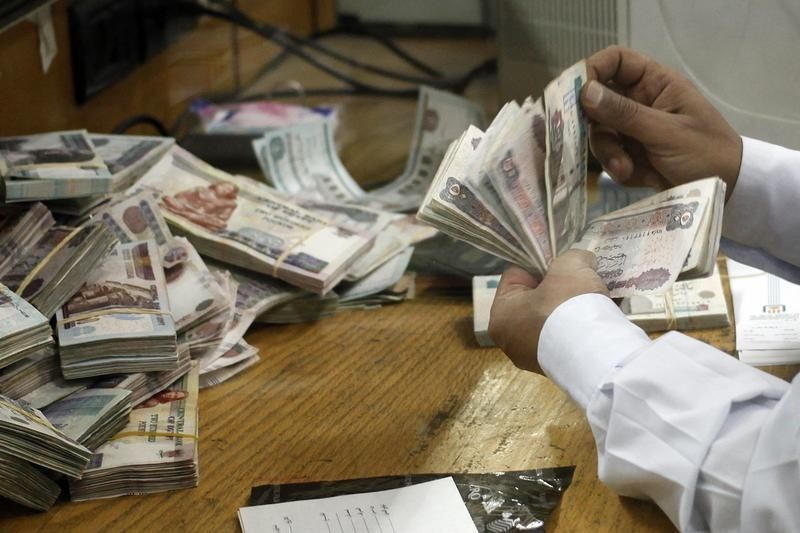Latest NEWS
- Aswat Masriya, the last word
- Roundup of Egypt's press headlines on March 15, 2017
- Roundup of Egypt's press headlines on March 14, 2017
- Former Egyptian President Hosni Mubarak to be released: lawyer
- Roundup of Egypt's press headlines on March 13, 2017
- Egypt's capital set to grow by half a million in 2017
- Egypt's wheat reserves to double with start of harvest -supply min
- Roundup of Egypt's press headlines on March 12, 2017
Equivalent of 1.3 pct of Egypt's GDP in secret Swiss bank accounts – report

An employee counts money at a bank in Cairo on September 4, 2014. REUTERS/Asmaa Waguih
By Mohamed Gad
CAIRO Sept 30 (Aswat Masriya) - Egyptians have deposited the equivalent of 1.29 percent of the country’s gross domestic product (GDP) in HSBC’s Swiss subsidiary HSBC Private Bank (Suisse) over a five-month period in 2006/2007, said a report on Wednesday.
This recent re-examination of SwissLeaks - a scandal that involved thousands of secret accounts exposed by the International Consortium of Investigative Journalists - was jointly conducted by Christian Aid, a British organization fighting poverty, and the US-based Financial Transparency Coalition (FTC).
The media coverage of the scandal had revealed the harm tax haven secrecy inflicts through the potential crimes of tax evasion and money laundering because of loopholes in the system.
Titled “Viewing #SwissLeaks Through a Different Lens”, the report looked at another angle: it compared the amount held by account holders in individual countries with the size of each country’s GDP, to show that proportionally the countries that lost out most were in the developing world.
“We heard about the $21 billion associated with the United Kingdom, or the $12 billion connected to France. Little was said, however, about the money moving out of some of the most impoverished countries in the world. When you use the same data, but look at the hidden bank accounts as a percentage of a country's GDP, the problem really begins to take shape,” says the report.
According to the report, the percentage of Egypt’s GDP deposited in secret Swiss accounts exceeds that of many developed economies. It is three times that of Italy’s percentage, ten times that of Germany’s and twelve times that of China’s, for instance.
Senior Economic Advisor at Christian Aid Joseph Stead, told Aswat Masriya in an email interview, that “while Egypt is a signatory to bilateral tax treaties, these do not always allow for the exchange of information. A case in point is the treaty between Egypt and Switzerland.
“Egypt cannot demand information from Switzerland that would impose taxes on Egyptian funds deposited there,” Stead continued. “Such funds have likely been deposited in Swiss banks to evade taxes.”
A new cross border financial information exchange system, called the Common Reporting Standard, has been drawn up by the G20 and Organisation for Economic Co-Operation and Development to combat tax secrecy.
However, the report warns that many low-income countries “will not be able to participate when the system is launched because of a ‘reciprocity’ rule that says a country must share information to receive it.”
The system involves participating countries trading financial information with each other at designated intervals, but “a number of developing countries do not have the capacity or technical systems to comply with their side of the requirement.”
According to the report, for instance, if the Mali government needs information about funds that have been deposited in England to evade taxes, it will need to provide the same information about UK funds stashed in Mali banks. Developing countries lack the technical capacity to do so.
Stead told Aswat Masriya that it would be necessary for Egypt to renegotiate tax treaties to include stipulations on information exchange.
In the meantime, he added, developing countries “should be given a temporary period of non-reciprocity where they can receive information without having to send their own.”










